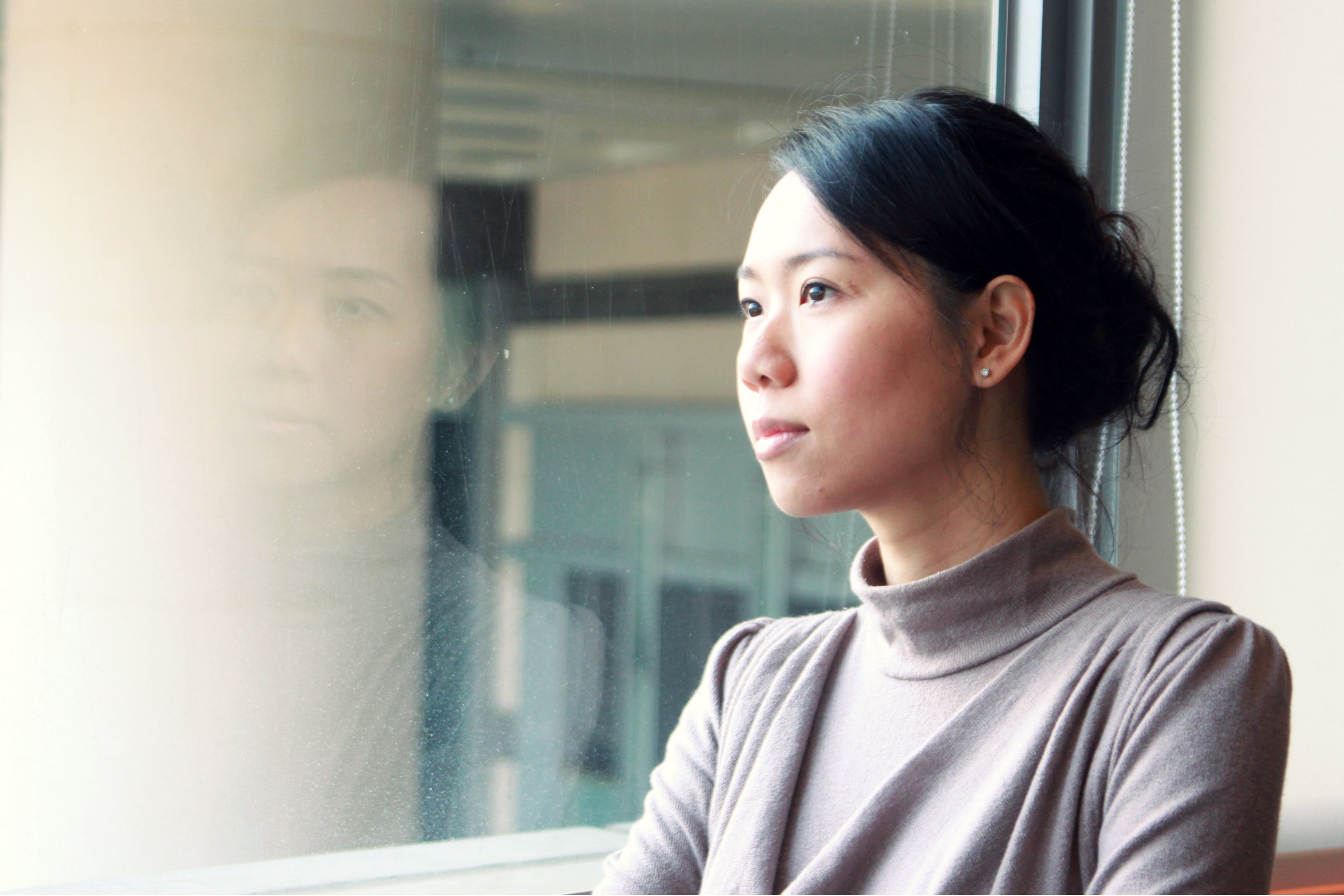Katherine Lam Suet-ying quits banking to search for meaning
By Yan Li
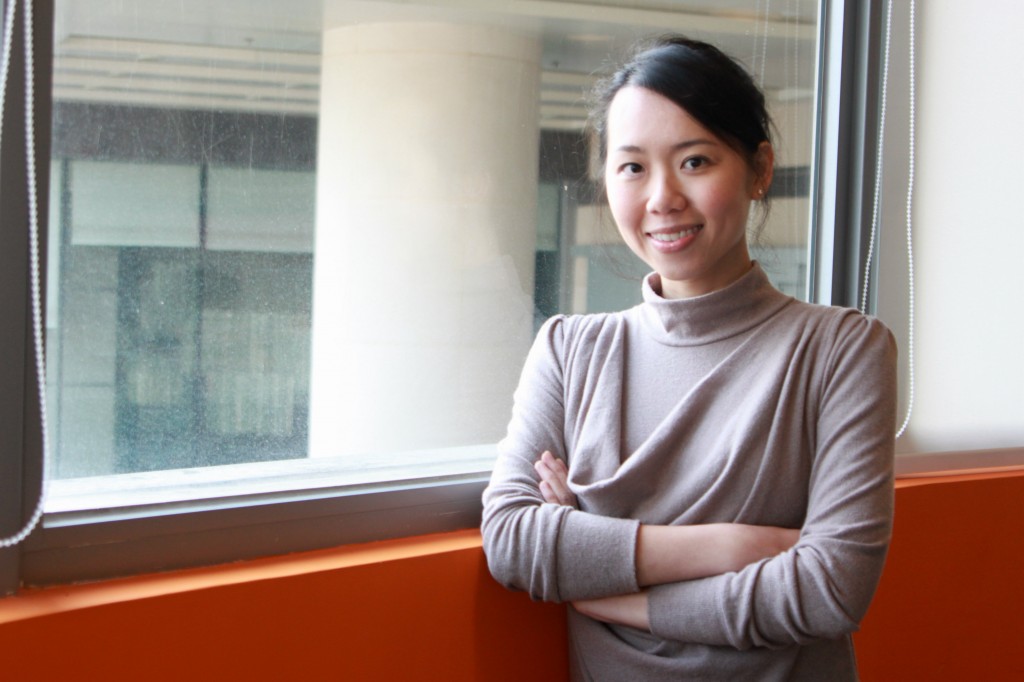
To any observer, Katherine Lam Suet-ying was the epitome of a successful modern woman. She had it all – a high-flying career in banking, a loving husband, an adorable baby boy. But instead of enjoying life at the top, the 34-year-old decided to quit her HK$1-million-a-year job as a vice-president of China Construction Bank (Asia) to pursue a new path as a budding social enterprise entrepreneur.
Lam’s story reads like a Hong Kong fairytale. She was born to a grassroots family and lived in a rooftop hut in Sham Shui Po as a child. Despite the lack of material comforts, Lam had a happy childhood as her garment-worker parents were loving and nurturing.
Riding the mass migration wave of the late 1980s and the 1990s, the family applied to emigrate to the United States. After 10 years on the waiting list, they finally packed their bags to join relatives in Florida in 1997, the year Hong Kong was handed over to China and Katherine turned 17. With just US$3,000 to their name, the Lams started work in a Chinese restaurant the day after their arrival and lived in a relative’s home.
Life in Florida was simple and comfortable. At that time, people could make a pretty good living waiting tables. They could raise their families and afford accommodation and cars. But it also made them less motivated to study or improve.
“I really hated that place because I thought everyone was living a lazy and dull life and I didn’t want to spend the rest of my life working at a restaurant,” Lam recalls. She says she was fed up with living in Florida and its status quo. This discontent spurred her to look further afield to find “success”.
After graduating with a master’s degree in decision and information science from the University of Florida, Lam immediately moved to California, a state far away from Florida, where she got her first banking job at Hong Kong and Shanghai Banking Corporation (HSBC) and met her future husband.
Lam is grateful she had a chance to live and study in the US as she encountered many opportunities there. “I love Hong Kong but America gave me the American dream; made me believe that people can succeed if they work hard enough, even when they come from a very humble background … I had never imagined that one day I could actually make it into the middle class,” she says.
 After California, Lam moved to New York and worked for Citicards and then Barclays in London. In 2009, she and her husband returned to Hong Kong because she had landed a job with A.I.G. Finance (Hong Kong). The company was subsequently acquired by the China Construction Bank (Asia). Before she left the company, Lam was vice-president, decision science.
After California, Lam moved to New York and worked for Citicards and then Barclays in London. In 2009, she and her husband returned to Hong Kong because she had landed a job with A.I.G. Finance (Hong Kong). The company was subsequently acquired by the China Construction Bank (Asia). Before she left the company, Lam was vice-president, decision science.
During the 11 years she worked in the banking industry, Lam’s job was mainly related to consumer credit and risk management. She used scientific and mathematical analyses to determine interest rates and the amount of credit that should be granted to consumers. Her duty was to optimise the bank’s profits by originating loans that would not be paid back in one go. For instance, consumers may make the minimum payment on their credit cards but they will end up paying more money in the long run.
Lam rarely thought about whether what she was doing was good for society or not. As a banker, her only focus was to make the most money by using resources strategically and effectively. “To be honest, I didn’t really care about the nature of my job. Instead I was quite proud of it because it could give me prestige and a high income,” she says.
Climbing the corporate ladder in such a competitive industry was by no means an easy thing to do. Lam says getting promoted at work required not just knowledge and hard work but also a good grasp of corporate survival skills, for instance, speaking the right words at the right time and presenting your work in the most positive light in front of the boss. Lam had the package that propelled her into a senior position.
Sometimes, the need to always be on top of things and look presentable was tiring and she often compared herself to others. “In large banks, everyone thinks he is tomorrow’s CEO so even when you are not [an ambitious person], you will be shaped to become one,” she says.
After more than a decade of constantly striving to get ahead, Lam began to reflect upon the nature of the job in the aftermath of the bankruptcy of Lehman Brothers and the financial crisis of 2008. She realised capitalism was not so much a good system as one that would be hard to change in reality. Although many have come to see banks as greedy and the promotion of materialism as something that is harmful to the world, those who work for the banks and benefit from them rarely reflect on their jobs in this way.
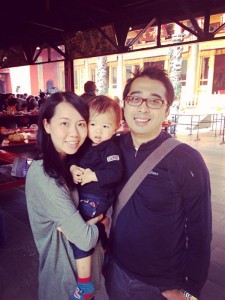
The seeds of doubt were already planted in Lam and becoming a mother a year and a half ago made her ponder the meaning of life even more. She realised that the values she wanted to instill in her son were not the ones she was practising in her own life. Thinking about what her life would be like in 10 years, she figured her work would only devour the time she could spend with her son. Lam began to ask herself whether there were other possibilities in life.
“I found that I was not living a life I wanted most,” Lam says. “My life values and work were not aligned because I didn’t think my job was meaningful [to our society].” Although she was regarded as successful by society’s definition of success, she was adamant that she did not want her son to tread the same path, to just follow mainstream expectations to study hard and find a good job.
Parenthood caused Lam to reconnect with her roots. She decided to breastfeed rather than use formula, to use cloth nappies instead of disposable ones. “I always wonder why I can’t I do what my mother did 30 years ago,” she says. “Often people become lazy and are influenced by advertisements.”
Lam says many parents buy things for their children, not because the children need them, but because the parents think they need them. She believes a child’s attitude depends on his or her parents.
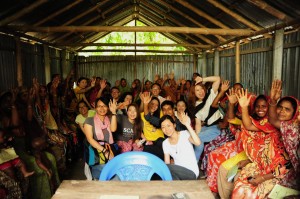
The big turning point came in 2013 when she participated in a workshop held by a social enterprise which aims to help the visually impaired. It was Lam’s first experience of a social enterprise and she was very impressed. “I really liked the concept of social enterprise, the combination of bringing good social impact and running a sustainable business model. It’s something realistic and matches my background.”
After the workshop, Lam read the autobiography of Nobel Prize winner Muhammed Yunnus, Banker to the Poor. The book describes how Yunnus set up the Grameen Bank in Bangladesh in the early 1980s and how it improved the lives of millions of impoverished people.
Inspired by the book, Lam joined a trip to Bangladesh with Education for Good, a local organisation that aims to promote creative social entrepreneurship. There, the banking executive saw how community banks offering small loans to the very poor could make a big positive impact. “Grameen Bank is just a simple and crude hut with only a desk and a chair,” recalls Lam. “But I was very touched because even though it’s so simple, it works and changes many people’s lives.”
The day after she came back from Bangladesh, Lam decided to quit her banking job and take a career break to take a course in social entrepreneurship at Education for Good. It was a difficult decision; her boss tried many times to urge her to stay and suggested she keep her job and start a social enterprise at the same time. Lam was moved. After all, she had a good working relationship with her boss, a comfortable working environment with stable hours, and a team working for her.
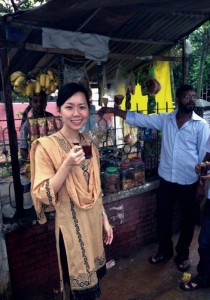
However, Lam says she believes that to start a new path, it has to be all-or-nothing. Her husband, who is also a banker, was sceptical at first. But after she shared more cases of meaningful social enterprises with him, he began to come around.
It is always a struggle to step out of one’s own comfort zone, but sometimes it is necessary in order to grow and learn. Lam says she has gained more than she could have imagined when she chose to follow her heart.
She says the best part of her new journey is making many friends who share similar beliefs and learning to be a more humble person. “My ultimate goal is to run a social enterprise that is sustainable and will bring good social impact to our society.” Lam says. She envisages a project that is related to the environment or education.
Although the details are yet to take shape, the former banker is preparing herself to embark on her new journey.
Edited by Louie Cheng









































